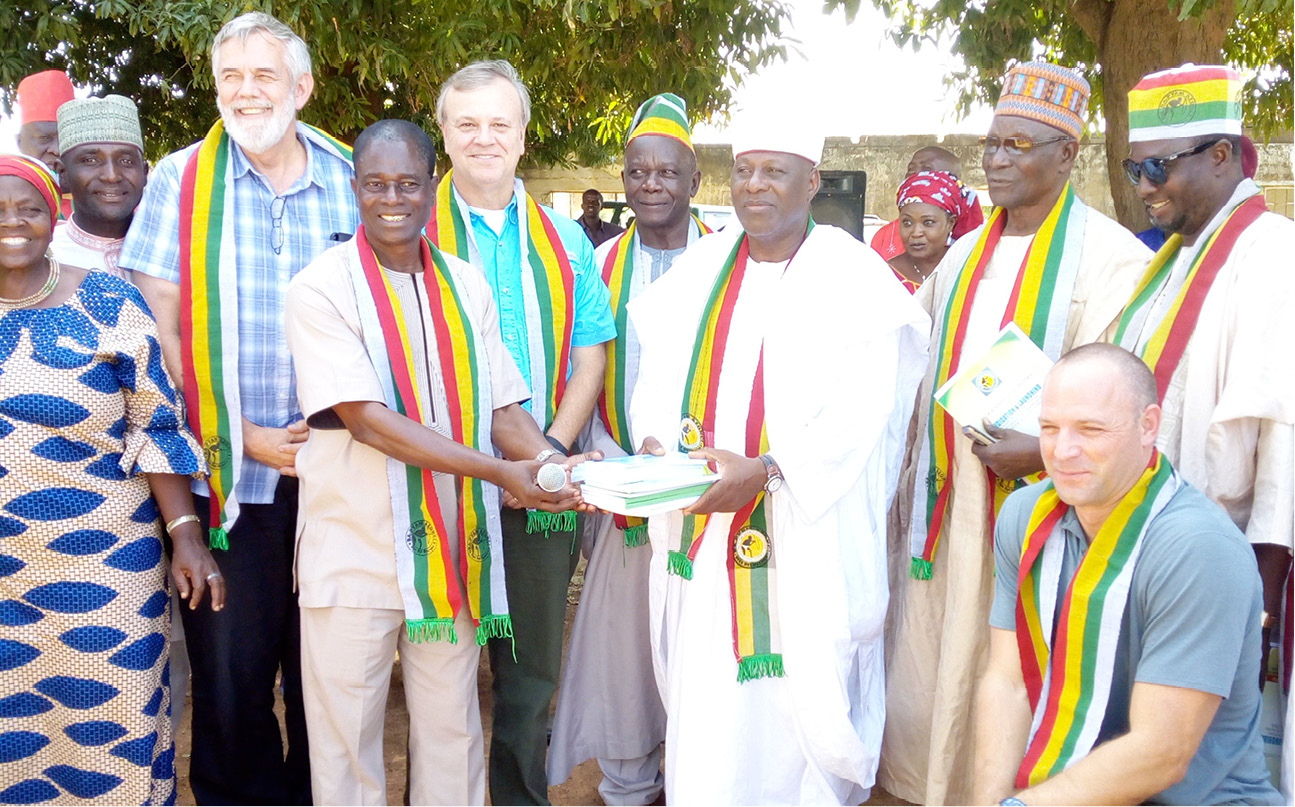Pyam people are predominantly found in Pyam Chiefdom of Mangu Local Government Area, Plateau State. Their population is about about a million and can be found mainly in Gindiri, Chanso, Kaduna, Pyam, Dyere (Pyamgiji) and Badni.
Pyam race is believed to be an extraction from the Gobir Kingdom, in present Sokoto State, and the people migrated from there during the reign of King Bawa Jangwarzo (1777-1795).
When the people left Gobir, a group settled in a place called Tulai, south east of Gindiri, while another moved on to settle in the present Bokkos Local Government Area.
The Pyam people had a traditional leadership under the leadership of Hwali-bwangha, who was also the chief priest, with six council members.
Following years of changes, which saw movements in and out of their locality, the Pyam people begun to lose their identity, especially the youth ssome of whom can hardly speak their mother-tongue.
It is this fear that moved Ba-Pyam Azonci Association to commission the publication of books in the local language.
The project was sponsored by the community had the support of some foreign partners from the United States.
Some of the books published in Pyam language included ‘Shalai na Waari na DePyam’ (Reading and Writing in Pyam); ‘Beer, Kwor, Na Cikam Arye’ (Relationship, Counting, Proverbs, Names and Directions), among others.
The project also saw the translation of the Gospel of St. Luke which is called ‘Nung Wutde Hai Luka Ta Waar.’
The public presentation of the books, which was held at Government Secondary School Gindiri, was attended by many sons and daughters of Pyam from all walks of life. The event was spiced with cultural dances and music.
In his speech, a former Deputy Senate President, Ibrahim Mantu, who is also a native of Pyam, commended his people for their effort to sustain their language.
Mantu, who was the chairman of the occassion, said publication of books would strengthen the local language and prevent it from going extinct.
He said it would also serve as a unifying force among the people.
Represented by Elder Yakubu Ajala, the Secretary General of Ba-Pyam Azonci Association, Mantu said speaking and writing in mother tongue and everything learnt through there was better understood.
He explained that the Hausa language was very strong because of the vision of Late Premier of the Northern Nigeria, Sir Ahmadu Bello, who identified the power of using language to unite the diverse ethnic nationalities of Northern Nigeria.
Ahmadu Bello, he said, made it mandatory for all children in primary school to be taught in Hausa, which made it the lingua franca of the entire northern region, and a force to reckon with.
Earlier, the National Chairman of the Ba-Pyam Azonci Association, Malam Abubakar Yusuf Fwangle, in his address, said the books would serve as reference materials for teachers, historians, students, researchers wanting to know about the Pyam nation/origin.
He called on all Pyam sons and daughters to henceforth cultivate the habit of writing down their stories, drama, history, poems, songs, in the local language so that they can keep the language and culture afloat.

 Join Daily Trust WhatsApp Community For Quick Access To News and Happenings Around You.
Join Daily Trust WhatsApp Community For Quick Access To News and Happenings Around You.


